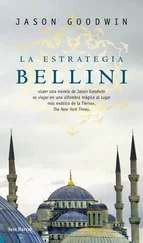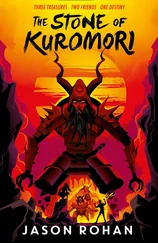Jason Goodwin - The snake stone
Здесь есть возможность читать онлайн «Jason Goodwin - The snake stone» весь текст электронной книги совершенно бесплатно (целиком полную версию без сокращений). В некоторых случаях можно слушать аудио, скачать через торрент в формате fb2 и присутствует краткое содержание. Жанр: Исторический детектив, на английском языке. Описание произведения, (предисловие) а так же отзывы посетителей доступны на портале библиотеки ЛибКат.
- Название:The snake stone
- Автор:
- Жанр:
- Год:неизвестен
- ISBN:нет данных
- Рейтинг книги:4 / 5. Голосов: 1
-
Избранное:Добавить в избранное
- Отзывы:
-
Ваша оценка:
- 80
- 1
- 2
- 3
- 4
- 5
The snake stone: краткое содержание, описание и аннотация
Предлагаем к чтению аннотацию, описание, краткое содержание или предисловие (зависит от того, что написал сам автор книги «The snake stone»). Если вы не нашли необходимую информацию о книге — напишите в комментариях, мы постараемся отыскать её.
The snake stone — читать онлайн бесплатно полную книгу (весь текст) целиком
Ниже представлен текст книги, разбитый по страницам. Система сохранения места последней прочитанной страницы, позволяет с удобством читать онлайн бесплатно книгу «The snake stone», без необходимости каждый раз заново искать на чём Вы остановились. Поставьте закладку, и сможете в любой момент перейти на страницу, на которой закончили чтение.
Интервал:
Закладка:
“I’m alone,” Yashim said.
“Will you step back and show me your hands?”
Yashim stepped into a windowless room. Baradossa slid the bolts home and hobbled to the far end of a table, carrying a candle. The cold air reeked of cabbages and sweat. So clean, Rebecca had said, you could eat off the floor. He’d have liked to fetch her in.
Baradossa set the candle on the table and rubbed his hands. “Cold?”
He was a small man, slightly bent, with a gray, bushy beard and small white hands, which he held up in front of his chest, like a squirrel. He might have been forty-five, or seventy-five, except that he wore, Yashim noticed with surprise, artificial teeth: they clicked in his mouth when he talked. He was dressed in a dark woolen coat, with a patterned shawl across his shoulders. His stillness was expectant.
“Xani,” Yashim said. “I’ve come to pay.”
“Oh yes?” The old man sniffed. “It’s you now, is it?”
“I come as a friend.”
“A friend, is it?” Baradossa rubbed his chin. “Would that be capital or interest, efendi?”
Yashim reached into his cloak and drew out a purse. Baradossa’s eyes flickered toward it. Yashim held the purse softly in his hand. “Interest. Forty piastres.”
“Forty piastres?” Baradossa sounded surprised.
“Xani couldn’t come,” Yashim said.
Baradossa glanced from the purse to Yashim’s face. He moved his head slightly.
“Do you know Xani, efendi?”
Yashim shook his head reluctantly. He felt confused. The old man didn’t move.
“They asked me to come. The interest is due.”
Baradossa slowly raised his shoulders until they almost reached his ears. Then they dropped.
Yashim counted out the money onto the table. “Forty piastres.” He looked up. Baradossa was watching him. Then his upper lip peeled back into a grin, exposing a row of little yellow teeth.
“Forty piastres, efendi? What makes you think I want your money?”
He came around the table and put his hands to the door bolts, sliding them back.
“He owes you six hundred piastres!”
“Is that what they told you, efendi?” Baradossa swung the door wide open and peered out.
Yashim felt the surge of goodwill that had followed him from the kebab shop evaporate.
“There never was a debt, was there?” It was a statement, not a question. There had been a trick. At least he’d saved Marta’s little hoard. “Forgive me, efendi.”
He took a last look around the room. At the doorway Baradossa’s eye wandered to the table, then back to Yashim’s face. Yashim glanced down. It had been there all the time. A sheet of paper, on which was written in a neat Arabic hand the name Xani, and the sum of 600 piastres. Below the rubric, in red ink, a date in the Jewish calendar and the words: Paid In Full.
“The month of Tammuz,” Yashim said dully. “It’s just begun.”
Baradossa merely raised an eyebrow.
“So Xani came and paid it off?”
“Who else?”
It was Yashim’s turn to shrug. “Yes,” he echoed. “Who else?”
The courtyard seemed bright after the dimness of Baradossa’s cell. He picked his way downhill through the crooked streets, toward the Golden Horn.
“Who else?” he muttered to himself. A little breeze touched his cheeks; it came off the water. He didn’t feel it.
Xani had paid off his debt, out of the blue. And then, almost immediately, he disappeared. It didn’t make sense: the waterman should be enjoying his newfound freedom.
Yashim stopped in the street. Enver Xani, he thought, had disappeared for good.
54
“I don’t know who they were, Yashim efendi. I wouldn’t have let them go up if I’d known. There’s never been anything like this here, and I’ve been here for fifty years next April.”
Widow Matalya closed her eyes and shook her head. She was not a woman to give way to hysterics. Yashim stood patiently in the dark hallway, where she had been waiting for him, his head bowed.
“I’m sure you’re right, Matalya hatun. Can you tell me what exactly has happened?”
“Two men, my efendi. I heard the door go while I was cleaning. I always do my cleaning in the afternoons. You know that, don’t you, my dear efendi? In the afternoons.”
Yes, and in the mornings, too, Yashim thought. He resisted the urge to hurry. Widow Matalya had had a shock, and she was getting around it in her own way.
“There was a lot that needed dusting, too. Not that I neglect my dusting, efendi, I wouldn’t have you think that. But the carpets pick it up, have you noticed? I was thinking it was a good day for beating the carpets, with the sun shining in the yard, and the carpets getting a bit dusty-it must’ve been ages since they were taken out, I thought, at least not this year. How could I, with all that rain we had in the spring?”
“Much too wet, yes,” Yashim murmured. “And these two men-?”
“I was coming to that, my all-forgiving efendi. It’s like I said, I wouldn’t have let them in if I’d known. I saw you go out earlier, and that’s what I told them. They said they’d wait. Friends of yours, they said.” She clamped her gums together. “I wouldn’t go up there now, efendi. I’ll try to make a bit of sense first, that’s best. Now that you know, that is.”
“Thank you. You’ve done everything right,” Yashim reassured her. “But there’s really no need to worry. Please. You just go and sit down, and have a glass of tea.”
He kept talking until he had steered the old lady back into her apartment. He put the kettle on the stove and saw her to the sofa. “The men-were they Greek?”
“Greek? Maybe, I don’t know. They could not have been Muslims, my only efendi. Like animals,” she added, as he closed the door.
Yashim took the stairs two by two. The door at the top of the stairs was closed. He pushed it back with his fingertips, and watched as it swung slowly open onto a scene of desecration.
55
“Suela, will you tell your mother something? Tell her that my name is Yashim. I am a lala.”
A guardian: he hoped that Mrs. Xani would understand. The ordinary eunuchs of Istanbul, the lala, served in families: they acted as chaperones, protectors, messengers, and mediators.
The girl nodded as if she understood, but when she spoke in Albanian her mother shook her head hopelessly.
“Tell her that I want to find your father.”
Suela’s eyes widened for a moment. She looked as if she were about to cry, but instead she bowed her head and murmured something in Albanian. Her mother raised her red-rimmed eyes and looked sadly at Yashim.
Xani received a salary of forty piastres a month, far more than he had earned as a porter. He had come to Istanbul fourteen years before: he had sold his land in Albania to his brother because it was not enough to keep a family. No, there was no bad blood between them; the brother had supported their marriage, twelve years ago. Both parents were dead. She had a mother living, who had been pleased with the match.
“So the family have no enemies in their village? No feud?”
The woman spoke. Suela said: “When Shpetin was a baby we went to the village. We went in a boat. It was very far.”
“Where did you stay?”
“At my uncle’s house. I have four cousins, two boys and two girls. I like the girls very much. We played every day.”
“And here you have Shpetin to play with.”
Suela nodded doubtfully. Shpetin was six; Suela was growing too old for little boys’ games, perhaps. Yashim pressed on. “Do you have family in Istanbul?”
“My father’s uncle was here, but he was old and he died. My father was-he-was very sad.”
Yashim sat back, keeping his eyes on the ground. Instinct told him that Xani’s disappearance had nothing to do with the family: it was entangled, somehow, in events in the city, in the debt. “I want to ask your mother, has anyone been to see you in the last few days? Anyone asking for money?”
Читать дальшеИнтервал:
Закладка:
Похожие книги на «The snake stone»
Представляем Вашему вниманию похожие книги на «The snake stone» списком для выбора. Мы отобрали схожую по названию и смыслу литературу в надежде предоставить читателям больше вариантов отыскать новые, интересные, ещё непрочитанные произведения.
Обсуждение, отзывы о книге «The snake stone» и просто собственные мнения читателей. Оставьте ваши комментарии, напишите, что Вы думаете о произведении, его смысле или главных героях. Укажите что конкретно понравилось, а что нет, и почему Вы так считаете.












